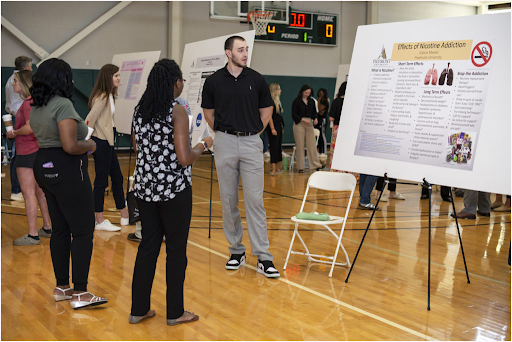By MEGAN STUDDARD
Editor-in-Chief
In May, the Board of Trustees vote on next year’s budget, which is currently being finalized by the administration.
Last December, the Board of Trustees approved a four percent tuition increase. In a previous interview, President James Mellichamp said providing competitive salaries for faculty and staff was one of the main reasons for the increase.
Back in December of 2012, Mellichamp said, “…We want to attract qualified faculty members,” He explained that most employees expect a cost-of-living pay increase.
“The fact that our tuition and salaries were frozen for three years meant that our salaries may not be competitive.”
However, in a recent email, he informed faculty and staff members that the college would not be able to provide salary raises next year.
Mellichamp declined to interview about next year’s budget development. John Misner, Executive Vice President for Institutional Resources, is in charge of coordinating the budget.
Misner points to rising employee benefit costs as the reason for postponing pay increases. According to Misner, health insurance is slated to increase by 19 percent. This increase is why, he says, that faculty and staff won’t be expecting raises next year.
“It is absolutely possible,” said Misner. “It doesn’t mean we couldn’t make an adjustment midyear, doesn’t mean we couldn’t pay a Christmas bonus. It all depends upon health insurance costs and what the revenues look like when students show up in August.”
“We had to let faculty know we couldn’t promise [raises]. The last thing we want to do is have to come back to the students and say ‘You know that four percent? We’re really going to need eight percent from you,’” said Misner. “That’s not fair and that’s not right”
According to Misner, the college expects to spend more next year than they did this year. He said operating expenses are going to increase five and a half percent while tuition will only be going up for students by four percent.
According to Misner, the budget development process involves departments across campus.
“We break it into two parts – the revenue side of things and the expense side of things,” said Misner.
Misner said he teams up with the Business Office and the Admissions Department to project revenues.
“You have to forecast how many will be full time students and how many will be part time students and how many courses they are taking,” said Misner.
“[We] build a model with many layers and tiers to get a feel for what the revenue will look like.”
On the expense side, Misner said he talks each department head to determine what they think they will need for the upcoming year.
“We look at it, tweak it, massage it and slap the two together,” said Misner.
“A budget is a moving target,” said Misner. “You adjust things through the year you can plan for but it’s hard to nail them down.”
















